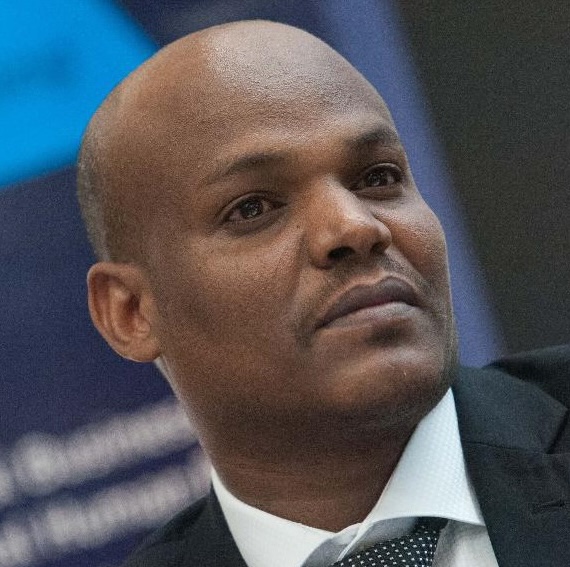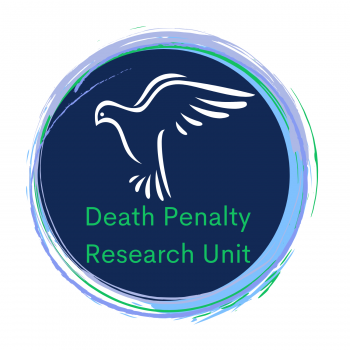DPRU Q&As: Elshareef Ali Mohammed, Sudanese Human Rights Initiative (SHRI), Sudan: Part One
Posted
Time to read
 In the latest instalment of the DPRU's Q&A series with death penalty litigators working in the Global South, DPRU Project Manager Daniel Cullen speaks to Elshareef Ali Elshareef Mohammed, a Sudanese human rights lawyer, about representing clients facing the death penalty, including in apostasy cases, his journey to working on capital cases and the challenges faced by human rights lawyers in Sudan.
In the latest instalment of the DPRU's Q&A series with death penalty litigators working in the Global South, DPRU Project Manager Daniel Cullen speaks to Elshareef Ali Elshareef Mohammed, a Sudanese human rights lawyer, about representing clients facing the death penalty, including in apostasy cases, his journey to working on capital cases and the challenges faced by human rights lawyers in Sudan.
Please could you briefly introduce the work of the Sudanese Human Rights Initiative and explain where litigation on death penalty cases fits within the organisation’s work?
As a human rights lawyer and founding Director of the Sudanese Human Rights Initiative (SHRI), I have dedicated myself to advocating for and protecting fundamental human rights and freedoms in Sudan. SHRI, a Sudanese non-governmental organisation with over 5,000 members, conducts a wide range of activities aimed at promoting human rights standards.
Litigation on death penalty cases stands as a central pillar of our mission. SHRI is firmly committed to challenging the use of the death penalty, particularly in instances where it has been applied unjustly or in violation of international human rights standards.
This focus on the death penalty aligns perfectly with our broader human rights work, including training Sudanese lawyers and human rights defenders; conducting strategic litigation; conducting public advocacy; and collaboration with other human rights organisations, including the Centre for Human Rights at Birmingham City University.
Through our multifaceted efforts, SHRI strives to ensure rigorous scrutiny of the death penalty, ultimately aiming for its abolition in line with international human rights norms and principles. Our work goes beyond defending individual cases: it is about driving systemic change to uphold and protect human rights for all.
Can you tell us about one or two of the most notable capital cases that you have dealt with in recent years?
Since SHRI is leading a campaign on the death penalty and freedom of religion or belief, I'd like to speak about two significant cases involving these issues.
Freshly graduated from law school with a Master's in International Human Rights Law, I was inspired to work in human rights litigation. This led me to an incredible opportunity – working on one of the most significant global cases of 2014: defending Meriam Ibrahim in Sudan. Meriam was sentenced to death and 100 lashes for refusing to renounce her Christian faith and becoming pregnant after her marriage to a Christian man. As part of the defence team, I provided legal representation in court. After the sentence, we appealed, and she was eventually released. Additionally, I led the case before the African Commission on Human and Peoples' Rights, which deemed it admissible.
Another significant case involved 27 Sudanese men and children accused of apostasy in December 2015. The 27 faced the death penalty under Article 126 of the Sudanese criminal law and deserved strong legal representation. As part of their dedicated pro bono legal team, I played a key role in securing their freedom. We presented a robust defence emphasising their right to freedom of belief and expression. Through detailed legal arguments and advocacy, we challenged the charges and exposed the lack of evidence for the offence of ‘disturbing the public order.’ Beyond legal defence, I also led public awareness campaigns, garnering support from national and international human rights organisations. Our combined efforts highlighted the injustice of the case. Ultimately, the court acquitted all 27 defendants, setting a significant precedent for defending individuals accused of apostasy in Sudan.
These cases exemplify the critical role of legal advocacy in protecting human rights and the importance of robust defence strategies in ensuring justice for those facing severe penalties under repressive laws.
How did you come to be working on capital cases? Was this something you envisaged when beginning your legal training?
My journey into working on capital cases has been shaped by both personal and professional influences. From a young age, I was politically active and a strong advocate for democracy at university. Witnessing peaceful students being sentenced to death for expressing their views was deeply impactful. Their resilience and courage have always inspired me. Growing up in Sudan, where justice and tolerance are cultural values, also played a significant role.
In my early twenties, my career began in legal aid, working at civil legal aid centres in Darfur, Kosti and Khartoum. These experiences exposed me to the harsh realities faced by many individuals and solidified my commitment to advocating for justice.
My specific interest in capital cases crystallized during my studies at Birmingham City University. There, I took a course on the right to life, guided by Professor Jon Yorke, whose mentorship and teaching ignited my passion for legal aid for death row inmates. Working with him again on UK-funded projects in Sudan further deepened my commitment to this cause.
These collective experiences have shaped my dedication to working on capital cases and advocating for the rights of those on death row.
What are the biggest challenges you face as a lawyer working on capital cases in Sudan?
As a lawyer working on capital cases in Sudan, I confront several formidable challenges:
Firstly, political instability stemming from the 2021 military coup has disrupted legal reforms and marginalized human rights considerations. This volatile environment impedes efforts to enact systemic changes and safeguard the rights of defendants.
Secondly, judicial independence is severely compromised in Sudan. Many judges remain influenced by the old regime, undermining the fairness of trials and jeopardizing just outcomes for defendants.
Thirdly, there is a pervasive lack of access to adequate legal resources. Public defenders are overstretched, and resources for effective defence, particularly for those on death row, are insufficient. Moreover, systemic discrimination against defendants from marginalized ethnic or social groups exacerbates their vulnerability within the legal system, further compromising their right to a fair trial.
In addition, harsh prison conditions, including prolonged shackling, inadequate hygiene and substandard medical care, constitute forms of torture that exacerbate the already severe psychological burden on inmates.
Furthermore, advocating for human rights and defending individuals facing capital punishment entails significant personal risks. Human rights lawyers and activists often encounter threats, harassment and violence, posing continual challenges to their work.
Moreover, Sudan's international isolation contributes to a lack of external support and pressure for crucial legal reforms. This isolation diminishes advocacy efforts aimed at promoting human rights and abolishing the death penalty.
These challenges underscore the urgent need for comprehensive systemic reforms and increased international solidarity to enhance Sudan's justice system and protect the fundamental rights of those confronting capital punishment.
What motivates you to continue working on capital cases?
Working for a cause and having a clear vision for change gives life its true purpose. For me, that cause is human rights and social justice. This mission propels me to tirelessly strive for meaningful impact. My early experiences working in legal aid centres strengthened my resolve to fight for justice. Above all, it is the resilience and courage of the individuals I represent that inspires me daily. Knowing that my efforts can profoundly affect their lives and potentially spare them from unjust execution fuels my determination to persevere in this challenging yet essential work.
What advice would you give to aspiring lawyers who would like to work on capital cases?
To aspiring lawyers aiming to work on capital cases, I offer this advice: commit to social justice and human rights with unwavering dedication. Start by engaging in voluntary and charity work as a solid foundation. Get involved in legal aid centres, human rights organisations or criminal defence internships. Practical experience is crucial for understanding the complexities of capital cases. Build a strong foundation in legal research, writing and trial advocacy. These skills are essential for presenting compelling arguments and effectively defending your clients. Additionally, take advantage of opportunities to travel beyond your city or country, including to places in Africa, Asia or elsewhere. Exposure to different jurisdictions greatly impacts your future work. Look beyond individual cases to advocate for broader legal and justice system reform.
This is the first part of a two-part interview with Elshareef. The second part is available here, covering the current situation relating to the death penalty in Sudan, the prospects of abolition in the country, the effects of recent legal trends and the catastrophic impacts of the ongoing war on civilians, including in the form of extrajudicial executions.
-----------------------------
Elshareef Ali Elshareef Mohammed is a Sudan-based human rights lawyer and Founding Director of the Sudanese Human Rights Initiative (SHRI). He has extensive experience as a Human Rights Officer with the United Nations for missions across the Middle East and North Africa, including Libya, Iraq, Sudan and South Sudan, and has presented numerous cases before Sudanese courts and the African Commission on Human and Peoples’ Rights. Elshareef holds an LLM in International Human Rights Law from Birmingham City University and an LLB (Hons) degree in Law, and has been recognised by Birmingham City University for his leadership and contributions to international human rights.
Share
YOU MAY ALSO BE INTERESTED IN

